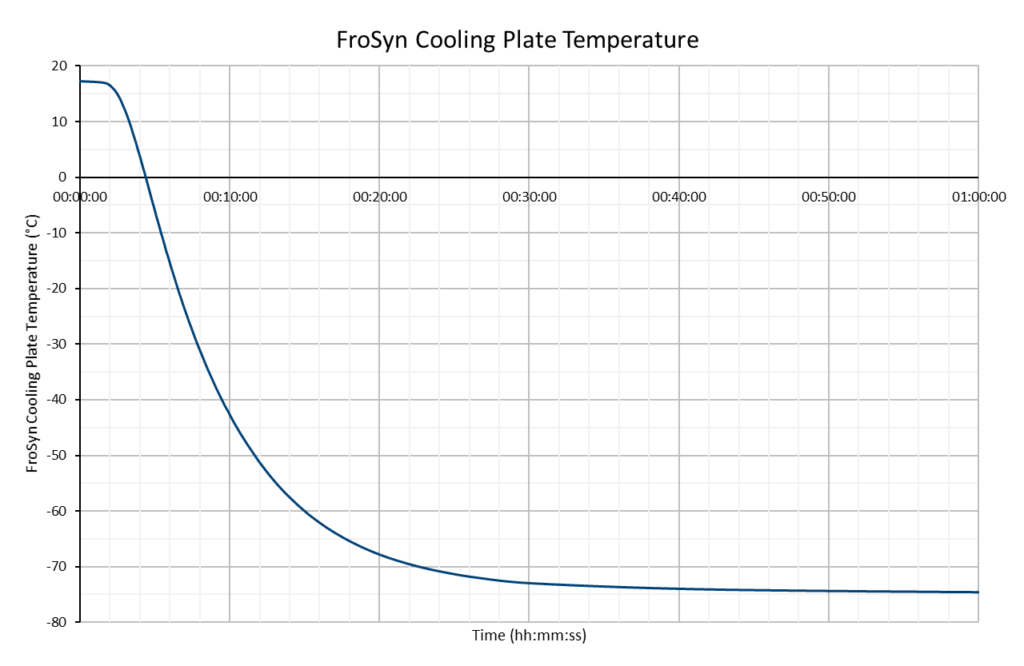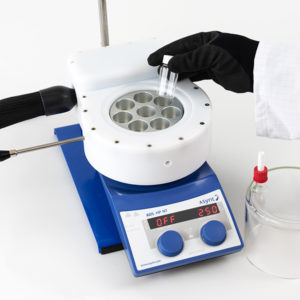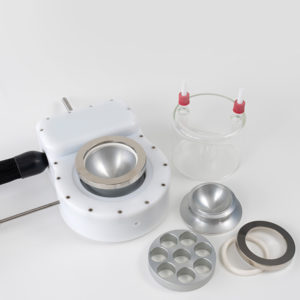Asynt announces FroSyn – an innovative fluid-free cooling plate that enables rapid cooling of samples in vials or round bottom flasks (up to 500 mL) to below -60 °C.
Designed in conjunction with temperature control specialists – Julabo GmbH, FroSyn represents a next generation sustainable alternative to using traditional ice and dry ice (CO2) cooling baths.
Active temperature control, via. a Pt100 sensor positioned in the insulated base plate, allows the user to set a defined plate temperature (down to -70 °C) and prevents temperature fluctuations over time. This innovative approach to sample cooling results in excellent reproducibility and improved reaction control. Unlike dry ice cooling baths that require constant attention, the stable and controlled sub-ambient performance of the FroSyn means that even overnight reactions can be performed with complete confidence.


Specialist insulation around the cooling probe and plate on the FroSyn improves performance, keeps the apparatus ice-free and helps eliminate the possibility of operator cold burns during operation. Positioning of the FroSyn on top of a conventional magnetic stirrer plate allows for efficient sample mixing during cooled experiments.

The FroSyn can be used with either a set of standard insets for round bottom flasks from 50 mL to 500 mL, or with custom manufactured reaction vial holding plates. The use of either weights and seals for the flask inserts, or an inerting dome with the vial plates prevents the formation of ice on the glassware. Other custom cooling accessories are also available to compliment different applications, for example a 4-position holding module for battery research and development.
For more information go to our product page here: FroSyn Cooling Station
Or contact us to discuss your requirements.
Download the full press release here: Rapid, Reproducible Cooling of Laboratory Samples
Refroidissement-rapide-et-reproductible-des-échantillons-de-laboratoire.pdf
Rasch-reproduzierbare-Kühlung-von-Laborproben.pdf
Enfriamiento-rápido-y-reproducible-de-muestras-de-laboratorio.pdf




